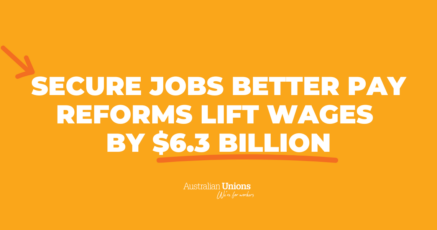Self-proclaimed “utopian anarchist” Elon Musk would like to have you believe that he’s not a regular billionaire, but a cool billionaire. He can be seen partying with various celebrities, creating video games and building rockets in what appears to be some kind of actualised fantasy of what a 10-year-old boy might do if he were mega rich. As Musk has flooded our screens with his comical antics and casual bids for world domination it seems that very few people are buying this act except for, well, maybe 10-year-old boys.
Despite all the smoke and mirrors, Elon Musk thinks and acts much like your garden variety billionaire. He’s a wolf in sheep’s clothing (or a SpaceX astronaut suit), with a relentless and career-long pursuit of otherworldly wealth coupled with a blatant disregard for the workers who build his products and the consumers who use them.
Hardcore? More like just plain old exploitative
He may have been able to hide this better in the past but since his much-talked-about acquisition of Twitter and the chaos that soon followed, he’s been revealed as the ruthlessly self-interested titan he’s always been. He’s gone on-record encouraging a work week ranging from 80 to 100 hours, earning him a pretty terrible reputation as a boss. It is even alleged that a former assistant of Musk’s was fired after working for him for 12 years for simply asking for a raise.
The ink wasn’t even dry on Musk’s $44 billion check before a string of layoffs at Twitter ensued. After one short month, half of Twitter’s global workforce has been cut, with many former employees claiming they received almost no warning. Those who remained were promptly told to commit to working “hardcore” – provoking a #SleepWhereYouWork mentality – with a caveat that those who don’t will be shown the door.
It’s hardly surprising that many former Twitter employees are outraged. They’re coming out in droves to share their stories with the media. But more importantly, they’re joining their union.
Take Germany as an example, where almost every member of an already small team was laid off quickly after Musk’s takeover, leaving a skeleton staff behind in one of Central Europe’s biggest hubs. What did they do? Each and every one of them joined their union and filed lawsuits against Musk and the company for wrongful termination.
Musk takeover results in further sidelining of marginalised communities
Workers over at Twitter HQ in Silicon Valley are no more content than those in Europe. Perhaps hardest hit are the Trust and Safety Team – tasked with managing the site’s content moderation – faced with targets on their backs from a new CEO whose vision is to dismantle the company’s internal processes which he perceives as “censorship”.
Shots were already fired on Musk’s first day as owner; firing the former head of Trust and Safety after 11 years in the role. It took only two weeks for the newly appointed head to quit amidst failed attempts to monitor and remove hate speech on Twitter – particularly the spike in tweets inciting violence against transgender people.
Incensed with their new CEO’s disregard for marginalised communities and the systems they had built to protect them, those who remained followed their counterparts in Europe and began organising. Twitter employees congregated together en masse and executed a sick-out. This impressive demonstration of collective action was, however, met with sobering results. Musk fired almost the entire team – dwindling from 120 to mere dozens overnight.
Billionaires are not our friends. Elon Musk’s tyrannical takeover of Twitter represents an assault on solidarity with Twitter users and employees alike. The website has never been all butterflies and rainbows, but it once was a place where likeminded people, especially those from queer communities, could form meaningful connections. Those who have fled the company lament the loss of security they once had.
The silver lining here is that we’re seeing perhaps the largest demonstration of industrial action in the tech sphere since it’s inception. By joining their union, Twitter workers everywhere are banding together with fiery optimism to flip this power dynamic. They’ve suffered enough and they’re doing something about it.







SHARE:
Employees at Twitter say enough is enough